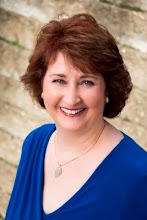One of the most fun things authors get to do is go to libraries, bookstores, and other places to talk to interested readers about their books. It's even more fun when we get to do it with other authors. Early this spring, I got to enjoy talking about Erin's Children, historical fiction set in Worcester, Massachusetts, with my friend and fellow author, Mary Anne Kalonas Slack. Mary Anne's debut novel, The Sacrificial Daughter, is also set in Worcester and, while it's not historical fiction, it does, like Erin's Children, feature an Irish family. We felt that was enough for us to do author talks together. Apparently, we were right because we've had great turnouts with very enthusiastic attendees.
More recently, I have done a talk with fellow BWL author, Eileen Charbonneau. Eileen and I have teamed up before and we truly enjoy it. This time we're talking about our most recent releases - my novel The Folklorist and Eileen's novel, Spectral Evidence which she co-authored with Jude Pittman and which is part of the Canadian Historical Mystery Series. Both are historical fiction. The Folklorist centers on the New England Vampire Panic while Spectral Evidence incorporates the Salem Witchcraft Trials. Since we are focusing on the folk beliefs about witches and vampires that came to America along with the European immigrants, we've titled our talk, "Witches and Vampires: When Old World Nightmares Invaded the New World."
Most of the people in our audiences have never heard of the New England Vampire Panic and, though nearly everyone knows of the Salem Witchcraft Trials, most are surprised to learn that one accused husband and wife managed to escape from prison after having sent their children off ahead of them. In Spectral Evidence the children are sent to relatives in Newfoundland where they try to adjust to a society very unlike their own. We both enjoy enlightening talk attendees on these little-known events from New England history and about how they connect with other places outside of New England.
It is always a pleasure to talk to readers about our books. It's especially enjoyable to answer questions, listen to comments, and interact with readers. You never know who might be in the audience and what gems they may want to share.
Case in point: Early in May I did a presentation with Mary Anne and another author, Ed Londergan, at the Hibernian Cultural Center in Worcester. In it I talked about my research on the history of Worcester including the fact that a resident of one of the historical districts gave me a private tour of his 1850s house which is nearly the same now as when it was built. Afterwards the President of the Hibernian Cultural Center told me that he and his wife are in the process of restoring an 1852 house and asked if I would like to see it. It was adjacent to the building we were in so I got an impromptu tour of a once- magnificent gem in the heart of the city right then and there. I have a feeling it will make an appearance in the next book in that series.
Eileen Charbonneau and I have started our Witches and Vampires book tour in the comfort of home. For me that was the Gale Free Library in Holden, Massachusetts, and for Eileen it was the Village Square Bookseller in Bellows Falls, Vermont, each being in the towns in which we live.
Presenting at the Gale Free Library in Holden, Massachusetts
Interacting with the audience at Village Square Bookseller in Bellows Falls, Vermont
While doing our talk in Bellows Falls, we found that one attendee was a direct descendant of Rebecca Nurse, one of the people hanged for witchcraft in Salem. During the Q&A portion of our talk, he told us the fascinating story of how he came to find out he was related to her. Again, an unexpected delight while on tour!
Now it's time to take it a bit further afield. In August, after we present at the Rockingham Public Library on the 9th, we will head north to the Champlain Valley area of Vermont. On this leg of the tour, however, we will be joined by another writer, Jane Willan, author of the Sister Agatha and Father Selwyn Mystery series. Having another author onboard necessitated a change in title, so it will become "Witches, Vampires, and Murder!" We are booked for a talk at the Pierson Library in Shelburne, Vermont in conjunction with the Flying Pig Bookstore on August 12th and are in the process of lining up more dates for the 10 days we've allotted for this leg of our tour. In our down time we'll be enjoying our own mini-writer's workshop as well as a little site-seeing.
We haven't forgotten that October is truly the best time of year for talk of witches and vampires. You can catch us at Tidepool Bookshop in Worcester, Massachusetts on the evening of October 29th. Follow us on Facebook to keep up with newly added dates and locations.

.jpg)



.jpg)




















